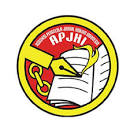Green Transportation Policy In Indonesia and Its Future Challenges
Keywords:
Green Transportation Policy, Indonesia, Future ChallengesAbstract
Green transportation policies in Indonesia have shown positive progress in reducing the environmental impact of the transportation sector. However, there are still major challenges that need to be overcome to achieve sustainable development goals in transportation. Limited infrastructure, the high cost of green vehicles, and the level of public awareness that needs to be increased are the main focus of this effort. The government needs to expand infrastructure, particularly in building electric vehicle charging stations across Indonesia, to support wider adoption of green vehicles. Active support from the private sector is also important in accelerating the development of environmentally friendly transportation technologies. In addition, consistent and sustainable policy development will provide certainty to investors and industry players to invest in green technology. The high initial cost of green vehicles is a major barrier for consumers. Therefore, appropriate fiscal incentives and subsidies are needed to make green vehicles more affordable and increase their attractiveness in the market. Raising public awareness about the long-term benefits of green transportation is also a crucial strategy through effective education campaigns. With strong collaboration between the government, the private sector, and the active participation of the public, Indonesia can overcome these challenges and achieve green transformation.
Downloads
References
Burhan Ashshofa, Legal Research Methods, Jakarta: Bhineka Cipta, 2008
Dessy Gusnita, Green Transport: Environmentally Friendly Transportation and Its Contribution to Reducing Air Pollution, Aerospace News, 11(2), 2010.
E. Hurst, Transportation Geography: Comments a nd Readings. New York,. United States. McGraw-Hill, 1974
Fidel Miro, Transportation Planning. Jakarta: Erlangga, 2002.
Gigih Gustomo & Samsudin Anis, Strength analysis of MD12E electric bus body frame of Mobil Anak Bangsa Limited Company by finite element method. JMEL: Journal of Mechanical Engineering, 9(1), 2020
Green Transportation Development to Support Sustainable Economy in Indonesia, accessed from https://deputi3.ekon.go.id/berita/view_by_id/58
Institute for Transportation & Development Policy, Electrification for the Future: The State and Challenges of Electric Bus Adoption for Public Transportation in Indonesia, ITDP Indonesia, Jakarta, 2023.
Irawan Soehartono, Social Research Methods A Research Technique for Other Social Welfare Fields, Bandung: Remaja Rosda Karya, 1999
IS. Ernawi, Green City Movement: Responding to Climate Change and Environmental Preservation. Spatial Planning Online Bulletin. Edition 2, 2012
Ministry of Transportation of the Republic of Indonesia, Minister of Transportation Encourages Acceleration of Electric Bus Use in Urban Areas, accessed from https://www.dephub.go.id/post/read/menteri-perhubungan-dorong- percepatan-penggunaan-bus-listrik-di-perkotaan
R. Bintarto, Urban Geography, An Introduction, First Printing. Spring, Jakarta, 1997
R. Z. Akbar, I. Haryanto, &G. D. Haryadi, Turning Stability Analysis of Medium Electric Bus with Variation of Speed and Road Condition. Journal of Mechanical Engineering, 2021
Shafa Lazuardi, Green Transportation as a Smart Solution to Protect the Environment, accessed from https://kumparan.com/shafa-lazuardi/transportasi-hijau- sebagai-solusi-cerdas-untuk-menjaga-lingkungan-1wW0afXj9Ig/full
Soerjono Soekanto and Sri Mamudji, Normative Legal Research, A Brief Overview, (Jakarta: PT Raja Grafindo Persada, 1985), p.13.
Downloads
Published
How to Cite
Issue
Section
License
Copyright (c) 2024 Emil Adly, Siti Khairunnissa, Boy Laksamana

This work is licensed under a Creative Commons Attribution-ShareAlike 4.0 International License.











